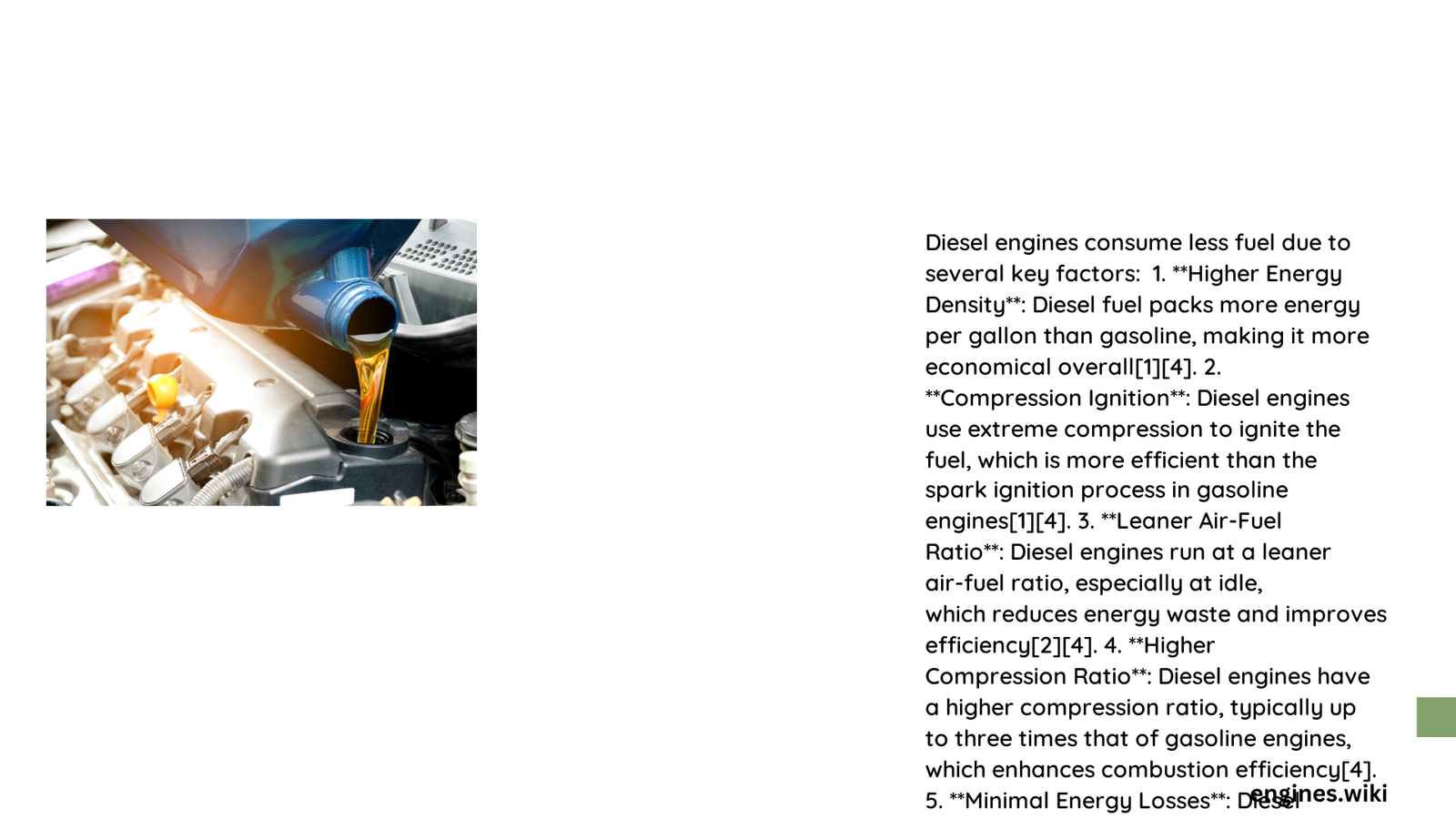Diesel engines represent a pinnacle of mechanical engineering efficiency, consuming significantly less fuel compared to gasoline counterparts through advanced thermodynamic principles, higher compression ratios, and more sophisticated combustion mechanisms. Their unique design enables superior energy conversion, translating mechanical complexity into remarkable fuel economy across various automotive and industrial applications.
What Makes Diesel Engines More Fuel Efficient?
How Do Thermodynamic Principles Contribute to Fuel Efficiency?
Diesel engines leverage fundamental thermodynamic principles to achieve superior fuel consumption rates. The key differentiators include:
Compression Ratio Advantages
- Higher compression ratios (16:1 to 20:1)
- More efficient energy conversion
- Enhanced thermal efficiency
| Compression Ratio | Engine Type | Thermal Efficiency |
|---|---|---|
| 16:1 – 20:1 | Diesel | 30% – 35% |
| 9:1 – 12:1 | Gasoline | 25% – 30% |
Why Does Combustion Process Matter?
The diesel combustion process fundamentally differs from gasoline engines:
- Compression Ignition
- Fuel ignites through heat generated by air compression
- No external spark required
-
More complete fuel oxidation
-
Lean Air-Fuel Mixture
- Excess air during combustion
- Enables more efficient energy extraction
- Reduces fuel wastage
What Technical Characteristics Enhance Diesel Efficiency?
Fuel Injection Precision
- Direct high-pressure fuel injection
- Precise fuel metering
- Optimized combustion chamber design
Energy Conversion Metrics
- Higher torque at lower RPMs
- Reduced mechanical energy losses
- Enhanced power transmission efficiency
How Do Environmental Factors Impact Diesel Efficiency?
Critical environmental considerations include:
- Temperature Variations
- Cold environments slightly reduce efficiency
-
Modern diesel engines include advanced temperature compensation systems
-
Altitude Performance
- Reduced air density affects combustion
- Electronic engine management mitigates performance variations
What Maintenance Practices Preserve Diesel Efficiency?
Recommended maintenance strategies:
- Regular fuel filter replacements
- High-quality diesel fuel usage
- Consistent lubrication system monitoring
- Periodic compression testing
- Advanced diagnostic scanning
Technical Efficiency Comparison
| Parameter | Diesel Engine | Gasoline Engine |
|---|---|---|
| Thermal Efficiency | 30% – 35% | 25% – 30% |
| Fuel Consumption | Lower | Higher |
| Torque Delivery | More Efficient | Less Efficient |
Conclusion

Diesel engines consume less fuel through a combination of advanced engineering principles, superior combustion processes, and precise mechanical design. Their ability to convert thermal energy more efficiently makes them a preferred choice for applications demanding high performance and economic fuel consumption.
